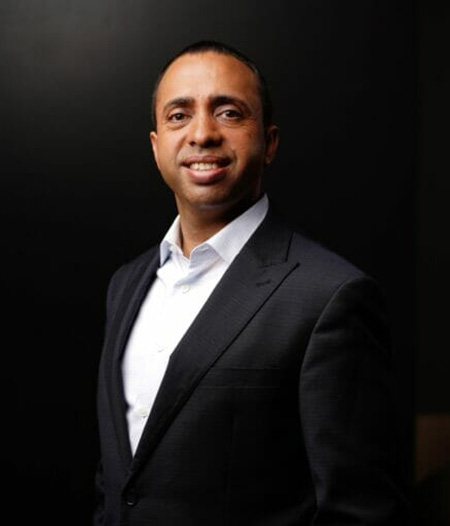Over the past two years the world ground to a halt as various COVID-19 restrictions were imposed. This international World Health Day (April 7), the World Health Organization (WHO) is concentrating on the environment, as well as giving control back to the people over their health after two years of lockdowns and restrictions focusing on the topic: Our planet, our health.
Throughout history, the usual situation is that the caregiver is in control of the patient’s health, rather than the patient themselves. In many cases, patients enter a healthcare facility unsure as to what is wrong with them and leave with the same questions but with a list of prescription medicine.
There is also the ongoing issue surrounding the lack of communication between healthcare professionals, especially when it comes to private and public healthcare facilities. There are examples of cancer patients moving between private and public facilities, and one healthcare professional being unable to view scans that were previously carried out in a different facility.
It is time to put healthcare back into the hands of the patient. It is time to reintroduce communication and cooperation between patients and caregivers. This is the first major step. By having control over your health, you can then have control over your environment and, in turn, the planet.
Who Has Control over Healthcare Data?
As we come out of the global pandemic, with travel restrictions being replaced or lifted completely in some scenarios, we will see an increase in numbers of people traveling around the world. Patient mobility can be experienced in a number of ways, whether this be traveling abroad, traveling at home or just choosing to go to a different healthcare facility. Regardless of the extent of patient mobility, there is a need to ensure that the patient has access and control over their own data. This way, they would be able to ensure that the correct information is being communicated between patient and caregiver, and an effective health care can be provided.
With patients and individuals not having control or access to their healthcare data, they are put at risk when they enter an unknown or new healthcare facility. Blockchain solutions are able to provide the facilities to ensure all parties involved have access to an individual’s healthcare data, whether this be in New York or Beijing, providers and patients need to be able to access information to ensure the best care possible is provided.
If an individual had full access to their own healthcare data prior to even entering a healthcare setting, they would have knowledge of their own health and how it is developing over time. This in turn would promote smart choices in their lifestyles to ensure they are less likely to enter a healthcare facility for help and, if they do, they will be able to share their data with healthcare providers of any past conditions to help ensure the best care possible.
Blockchain in the Healthcare Industry
Blockchain technology helps support the goal of decentralizing the healthcare sector and providing patients with the information they deserve about their own healthcare data. The main aim for the introduction of blockchain technology in the healthcare sector is to address many of the issues and problems affecting the industry. This can be achieved through decentralizing data into individual patient nodes. For more effective population health management, patients can provide consent and monetize parts of their health data to be shared for the creation of a shared archive of health information of a specific condition. This can be done without having to reveal their identity, thus protecting their privacy. The power brought by blockchain has been utilized throughout numerous different industries globally and is an ideal technology to revolutionize healthcare.
Unfortunately, it is a well known fact that many different healthcare organizations keep fragmented records for patients. This can be eliminated and ensures there are no missing or fragmented records through utilizing blockchain technology and creating a distributed electronic health record (EHR) ecosystem made up of individual patient nodes, where patients have complete control over their nodes. The inclusion of the blockchain framework will provide the ability to provide a decentralized and robust solution to resolve the issues of communication and lack of patient ownership of their data and information. This, again, will help ensure improved quality, reduction of errors and provide different financial and operational benefits to healthcare organizations.
It is understood that blockchain technology can vastly improve the administration side of the healthcare sector, for example it improves aspects such as communication, efficiency and handling of healthcare data. But, blockchain can be used to improve different types of medical practices, such as telehealth.
Telehealth became an increasingly popular tool for healthcare providers during COVID-19 to reduce the burden and strain on hospitals and facilities. Blockchain technology has the ability to vastly improve telehealth and telemedicine services by allowing healthcare providers to provide decentralized, tamper-proof services which are also reliable, secure and traceable for the patient at home.
The utilization of telehealth services allowed for numerous environmental benefits. With telehealth, there is no need for travel to different healthcare facilities, reducing general reliance on fossil fuels to receive treatment. The further introduction of telehealth will overall reduce the sector’s carbon footprint. A study carried out by the NHS, in Scotland, found that utilization of telehealth, rather than physical appointments, could reduce carbon emissions as it would greatly reduce the amount of travel involved in healthcare. Whether this be staff, patients or visitors, telehealth will provide an emission free opportunity to see a healthcare professional.
Why We Should Create Decentralized Healthcare
Globally, the healthcare sector is one of the fastest growing sectors and it is important for it to stay up to date with the ever-changing ecosystem of technology and patient care. Blockchain technology promotes the decentralization of an industry and, for the healthcare sector, it supports the management of logistics and the quality of care in healthcare and health systems.
Other than the obvious advantages of a decentralized healthcare sector with the increased concentration on the patient, the approach and implementation of this practice will help support and strengthen disease surveillance systems in the case of outbreaks, which may lead to a national and international crisis… something that may have helped us all two years ago.
Blockchain technology is also traceable. This allows for the portrayal of different problems that may arise and allows for corrections to be implemented, if necessary. Overall, blockchain and a decentralized healthcare sector will allow for faster processing. There will be no need to go back and forth between caregivers, the information will be accessible in real time.
There will, of course, be initial difficulties around implementing blockchain technology potentially due to the lack of knowledge around the technology or legacy systems that are in place. This difficulty will need to be approached with an open mind throughout the healthcare industry and to promote education around the topic.
There is also the issue of blockchain technology’s energy consumption. There have been advances made in this in recent times as blockchain is becoming more sustainable. Cryptocurrency mining is becoming more sustainable and there has been a rise in sustainable NFT exchange platforms. There have been developments in Australia surrounding the possibility of using excess renewable energy to mine for cryptocurrencies. There is also the example of the A Bitfury mine in Mo i Rana, Norway, where hydroelectricity powers 90% of the mine.
The beginning of a greener, more sustainable and efficient future is starting to become clear. On World Health Day, we call upon healthcare providers to make a concrete commitment to invest in a decentralized healthcare system with blockchain technology at its heart putting us in charge of our planet and our health.







